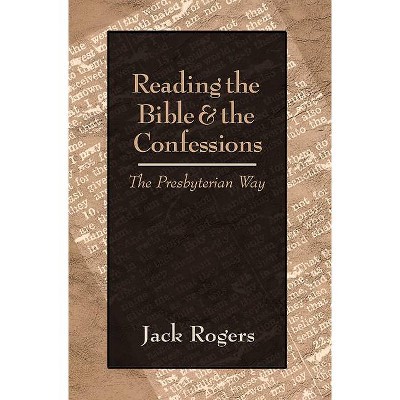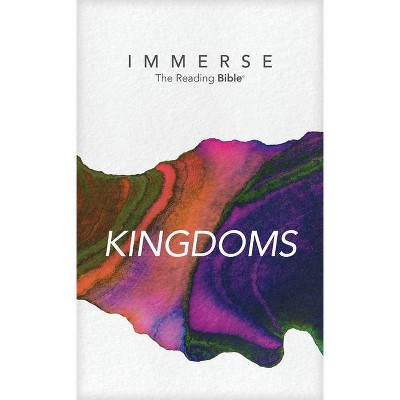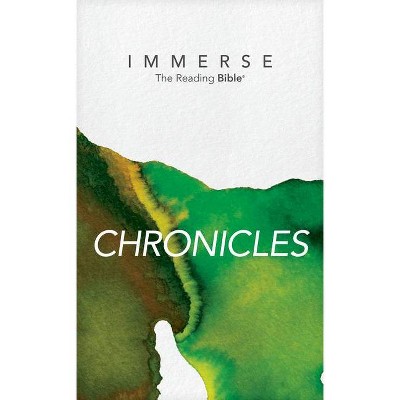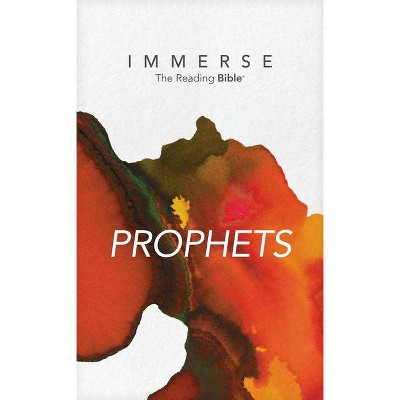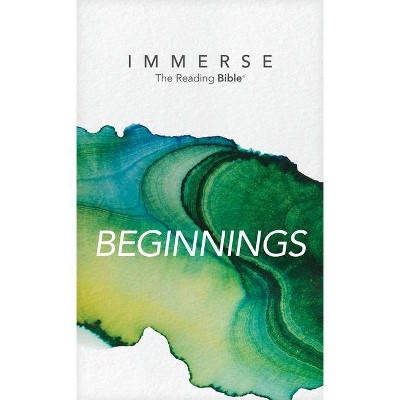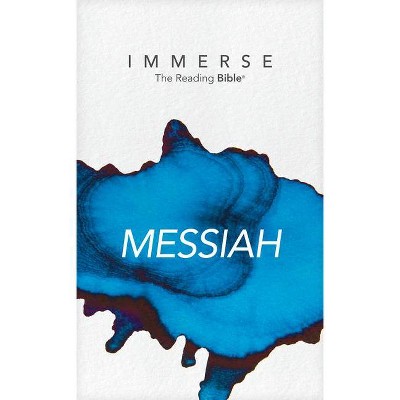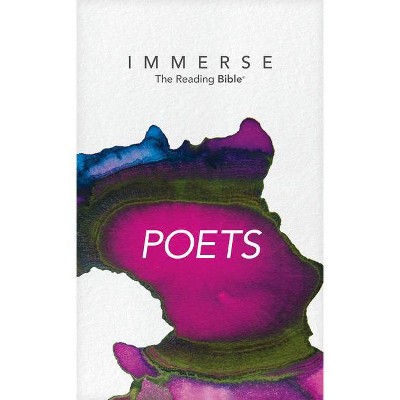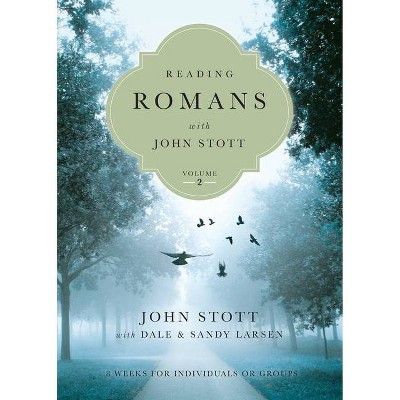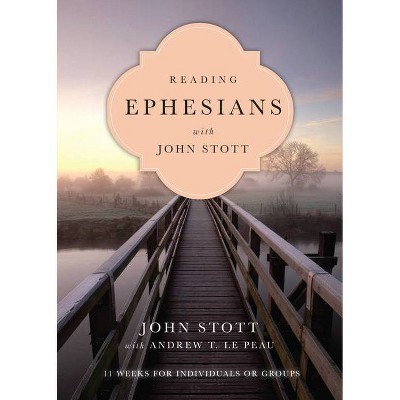Reading the Bible as Literature - by Jeanie C Crain (Paperback)
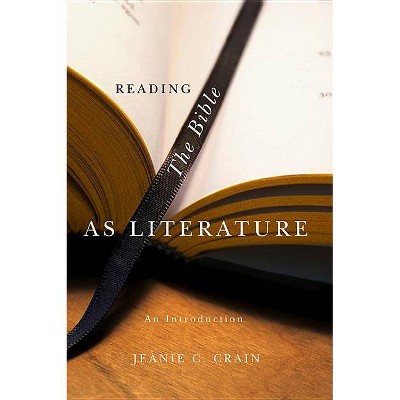
Similar Products
Products of same category from the store
AllProduct info
<p/><br></br><p><b> About the Book </b></p></br></br>This book provides the ideal entry-point to the process of reading, understanding, and assessing what many recognize to be the important and powerful literature of the Bible. The book introduces the tools of literary analysis, including: language and style, the formal structures of genre, character study, and thematic analysis.<p/><br></br><p><b> Book Synopsis </b></p></br></br><i>Reading the Bible as Literature</i> provides the ideal entry-point to the process of reading, understanding, and assessing what many recognize to be the important and powerful literature of the Bible. Such reading holds potential for helping students understand literature generally and the Bible in itself. The book introduces the tools of literary analysis, including: language and style, the formal structures of genre (narrative, drama, and poetry), character study, and thematic analysis.<br /> <br /> The overall organizational structure of the book proceeds incrementally from basic literary elements to higher units of form. Each chapter includes an outline, preliminary considerations that provide background and insight into scholarly debates, and an explanation of the literary qualities of the primary text through specific examples, exercises, and directions for further study.<br /> <br /> The book emphasizes the act of reading itself, focusing upon the whole text as it exists in its current form. It invites an experiential entering into and reliving of the Bible's stories, encourages analytical and holistic reading, explores multiple interpretations, and embraces a power of language originating in the mythological, metaphorical, and symbolic. Above all, the book seeks to return the Bible to the common reader and to build in that reader an appreciation for a collection of ancient, literary texts often trivialized by competing theologies or marginalized by a relentless insistence upon fact, science, and history.<p/><br></br><p><b> From the Back Cover </b></p></br></br>Dr Crain's book offers undergraduates an invaluable means of studying the biblical texts, systematically demonstrating how applying a host of different literary techniques can help illuminate the biblical writers' message. By analyzing the use of such rhetorical devices as image, metaphor, archetype, narration, and character portrayal, Dr Crain equips students to interpret the Bible responsibly and effectively.<br />Stephen Harris, California State University, Sacramento <p> Reading the Bible as Literature has three overarching virtues in addition to its myriad individual insights into both literature and the Bible: it is a comprehensive introduction to the literary forms of the Bible; it is wonderfully systematic in its approach to the material; it is copious in its coverage of published scholarship on the Bible as literature.<br />Leland Ryken, Wheaton College</p> <p> Reading the Bible as Literature is a solid and sure introduction to the field. Crain hits all the bases here. She manages, through her conversational approach and well-designed additions, to create a resource which will serve as a strong introduction to an important field.<br />David G. Miller, Mississippi College</p> <p> As a teacher of the Bible, I often find students reading not the text itself, but instead recalling what they have heard about it. I am pleased to see Dr Crain opening up the biblical text to students once again.<br />John Strong, Missouri State University</p> <p> Reading the Bible as Literature provides the ideal entry point to the process of reading, understanding, and assessing what many recognize to be the important and powerful literature of the Bible. The book introduces the tools of literary analysis, including language and style, the formal structures of genre (narrative, drama, and poetry), character study, and thematic analysis.</p> <p> The book emphasizes the act of reading itself, focusing upon the whole text as it exists in its current form. It invites an experiential entering into and reliving of the Bible's stories, encourages analytical and holistic reading, explores multiple interpretations, and embraces a power of language originating in the mythological, the metaphorical, and the symbolic. Above all, it seeks to return the Bible to the common reader and to build in that reader an appreciation for a collection of ancient, literary texts often trivialized by competing theologies or marginalized by a relentless insistence upon fact, science, and history.</p> <p> Jeanie C. Crain is Professor of English at Missouri Western State University</p><p/><br></br><p><b> Review Quotes </b></p></br></br><br>The extremely well structured discussion, the tone and method of delivery and the thought put into every explication of the numerous Biblical episodes reveal the conscientiousness with which this book was threaded together. As such, this text is not only significant for the uninitiated student of literature but also for the academic who may wish to use it as resource book when teaching this classical text.<br /><b>Southeast Asian Review of English </b> <p> Dr Crain's book offers undergraduates an invaluable means of studying the biblical texts, systematically demonstrating how applying a host of different literary techniques can help illuminate the biblical writers' message. By analyzing the use of such rhetorical devices as image, metaphor, archetype, narration, and character portrayal, Dr Crain equips students to interpret the Bible responsibly and effectively.<br /><b>Stephen Harris, <i>California State University, Sacramento</i></b></p> <p> Reading the Bible as Literature has three overarching virtues in addition to its myriad individual insights into both literature and the Bible: it is a comprehensive introduction to the literary forms of the Bible; it is wonderfully systematic in its approach to the material; it is copious in its coverage of published scholarship on the Bible as literature.<br /><b>Leland Ryken, <i>Wheaton College</i></b></p> <p> Reading the Bible as Literature is a solid and sure introduction to the field. Crain hits all the bases here. She manages, through her conversational approach and well-designed additions, to create a resource which will serve as a strong introduction to an important field.<br /><b>David G. Miller, <i>Mississippi College</i></b></p> As a teacher of the Bible, I often find students reading not the text itself, but instead recalling what they have heard about it. I am pleased to see Dr Crain opening up the biblical text to students once again.<b><br />John Strong, <i>Missouri State University</i></b><br><p/><br></br><p><b> About the Author </b></p></br></br><p><strong>Jeanie C. Crain</strong>, Missouri Western State University.
Price History
Price Archive shows prices from various stores, lets you see history and find the cheapest. There is no actual sale on the website. For all support, inquiry and suggestion messagescommunication@pricearchive.us

